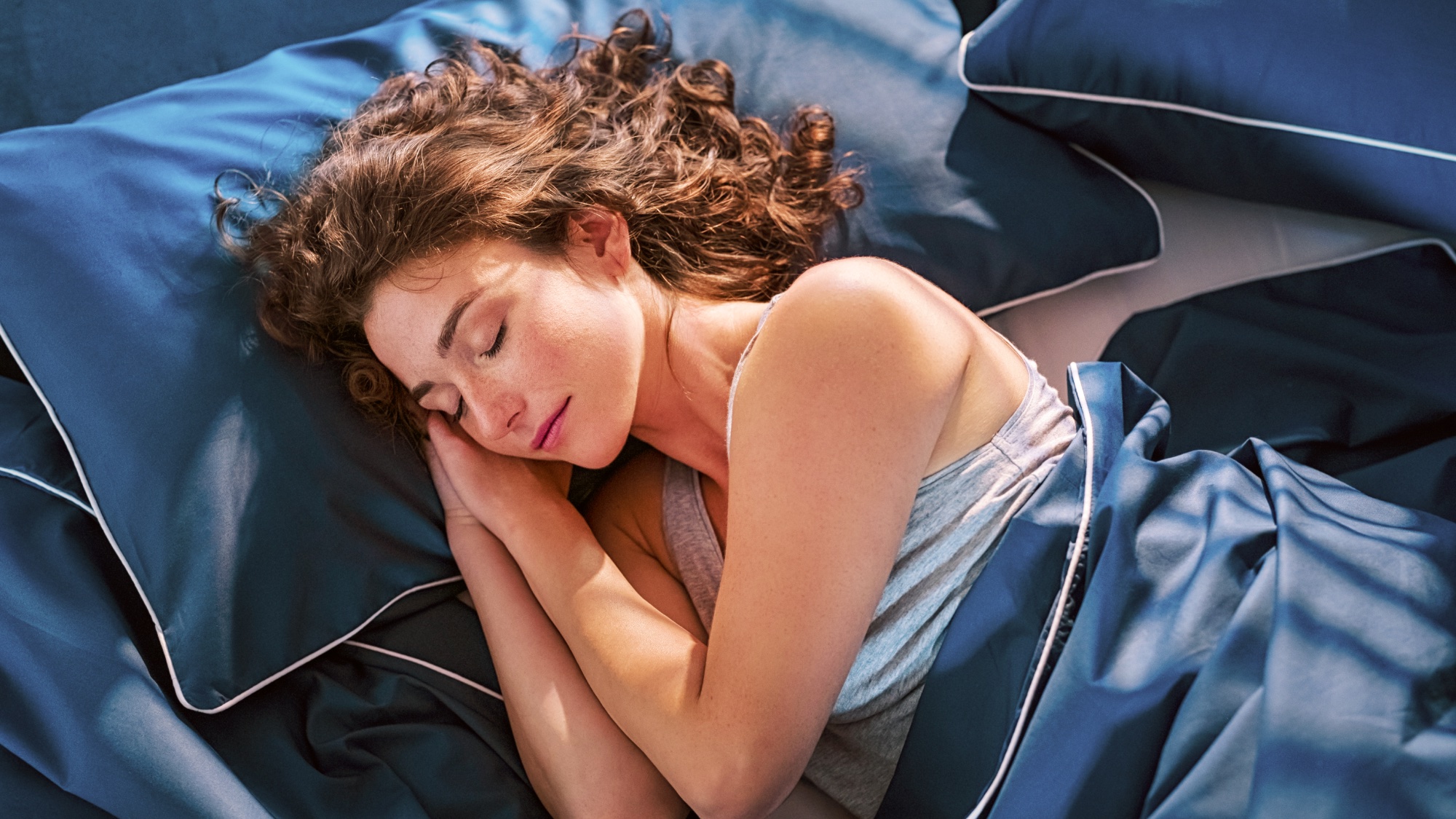
Over a quarter of American adults do not get the recommended seven hours of sleep. The 2020 National Center for Health Statistics (NCHS) reported 14.5% of adults have trouble falling asleep. And it's no surprise with our fast-paced lifestyles.
However, not getting enough sleep can take it's toll on our physical and mental health. The best way to fix your sleep schedule is to try and go to bed earlier. This will make it easier to get the recommended 7-9 hours of sleep you need.
But this is easier said than done. For some people early mornings come naturally, for others, they may define themselves as night owls, naturally feeling energized in the evenings. While it is difficult to fight your natural inclination to sleep or wake up, it is crucial to set up a proper sleep routine if you find yourself sleep deprived, especially in the winter months. Here's how to go to sleep earlier so you can feel more well rested.
How to go to sleep earlier: A step-by-step guide
Setting up a sleep schedule and sticking to it can be tricky, especially if you’re used to staying up until midnight. Here are some tips to making it easier:
1. Create a nighttime routine
It’s important to let your body know when it’s time to wind down. Instead of being actively involved in work until bedtime, you can create a nighttime routine to slowly relax. Starting your bedtime wind down with a hot bath or shower can be effective.
Research shows that this can lower the body's core temperature thus promoting sleep. This could be followed by tasks known to calm the mind and inducw sleep, like meditation, journaling, listening to gentle music or reading.
2. Reduce screen time
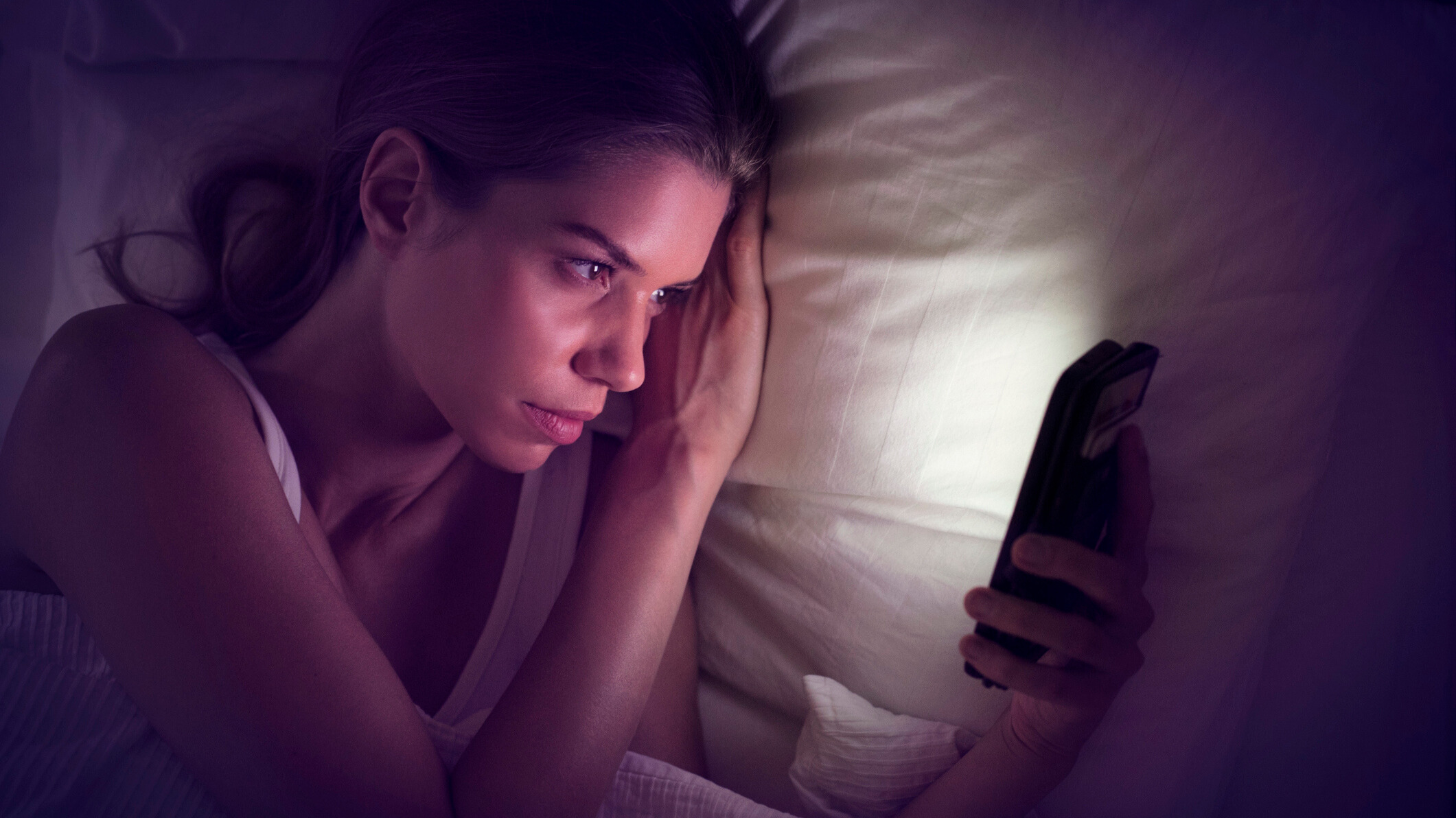
Scrolling through social media when you’re in bed is very tempting. However, this may be the culprit behind your accidental late nights. Melatonin, which your brain produces in response to darkness helps promote sleep. Using screens an hour or so before bed can alter this process, delaying the time it takes to fall asleep.
This can also significantly impact your sleep quality, causing interruptions in your REM phase and making you feel extra tired the next day. It is, therefore, wise to keep your electronic devices safely stowed away until the morning.
3. Wake up earlier
This sounds even more difficult but it can set things straight from the minute you start your day. If you change your bedtime, adjusting your morning routine can help fix your sleep schedule. You may find yourself not being tired enough to go to bed early if you skip this step.
When you begin to set up a routine, it can take some time until you feel adjusted. The key is to stick to the timings even on weekends so that your circadian rhythm is properly set to enhance your sleep quality.
4. Setting up the right environment
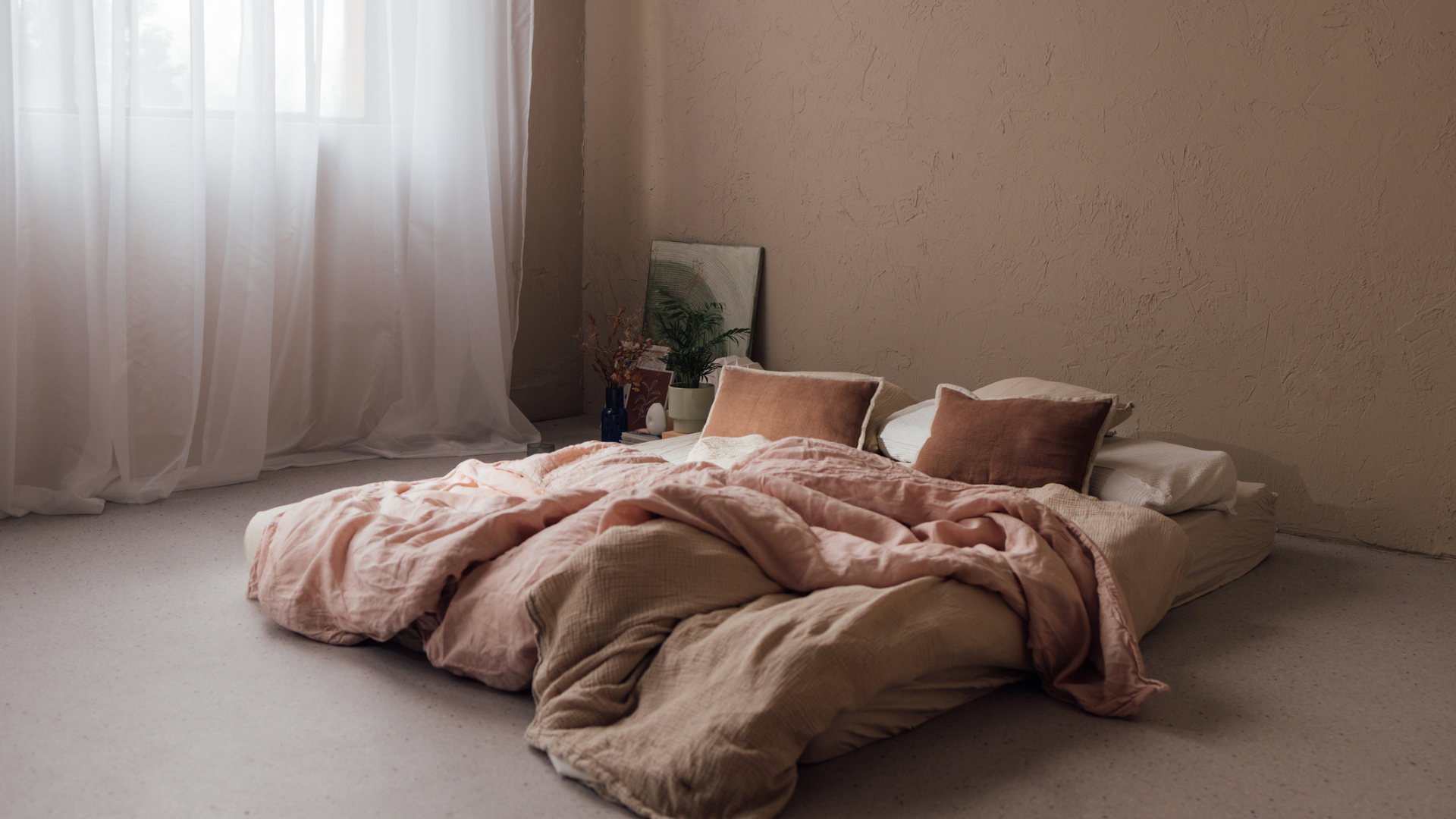
Ambient noise and sources of light can wreak havoc on your ability to fall asleep fast. Having the right environment is crucial. Ensuring your bedroom is a calm and cozy space with the right bedding, the best mattress for your sleep needs, and fewer should help signal to your body that your room is a space for sleep and sleep only.
Creating the ideal temperature is also important, which is recommended to be between 68- 77 Fahrenheit. While many of us now enjoy remote working, the temptation to work from bed is tricky to resist. However, keeping your work away from the bedrooms will also strengthen your mental association of your room with relaxation and sleep.
5. Limit your coffee intake
While a hot cup of coffee might feel like a hug, it's best avoided in the afternoons. Experts say that consuming 200-400 mg of caffeine even six hours before your bedtime can have detrimental effects on your sleep quality.
This is because caffeine is a stimulant which can make our brain and nervous system more alert. It increases the production of cortisol and adrenaline which are known to make us feel active and energetic. If a warm drink is all you need before bed, opt for herbal teas specially curated to help you relax and promote sleep.
What are the benefits of going to sleep early?
Reaping the benefits of quality sleep doesn't always mean going to bed earlier. It’s more about ensuring that you’re getting enough sleep. However, studies have pointed out that staying up until the early hours of the morning can prove to be detrimental to your overall wellbeing making you feel tired throughout the day and potentially leading to other psychological problems like anxiety or depression.
“Even if you feel you can ‘cope’ day-to-day with less sleep, you should still aim for your recommended hours every night. Good quality sleep is crucial for our health as it serves to re-energise the body’s cells, as well as improve vital brain functions such as learning and memory,” says Dr Hana Patel, an NHS Doctor and resident sleep expert at Time4sleep.
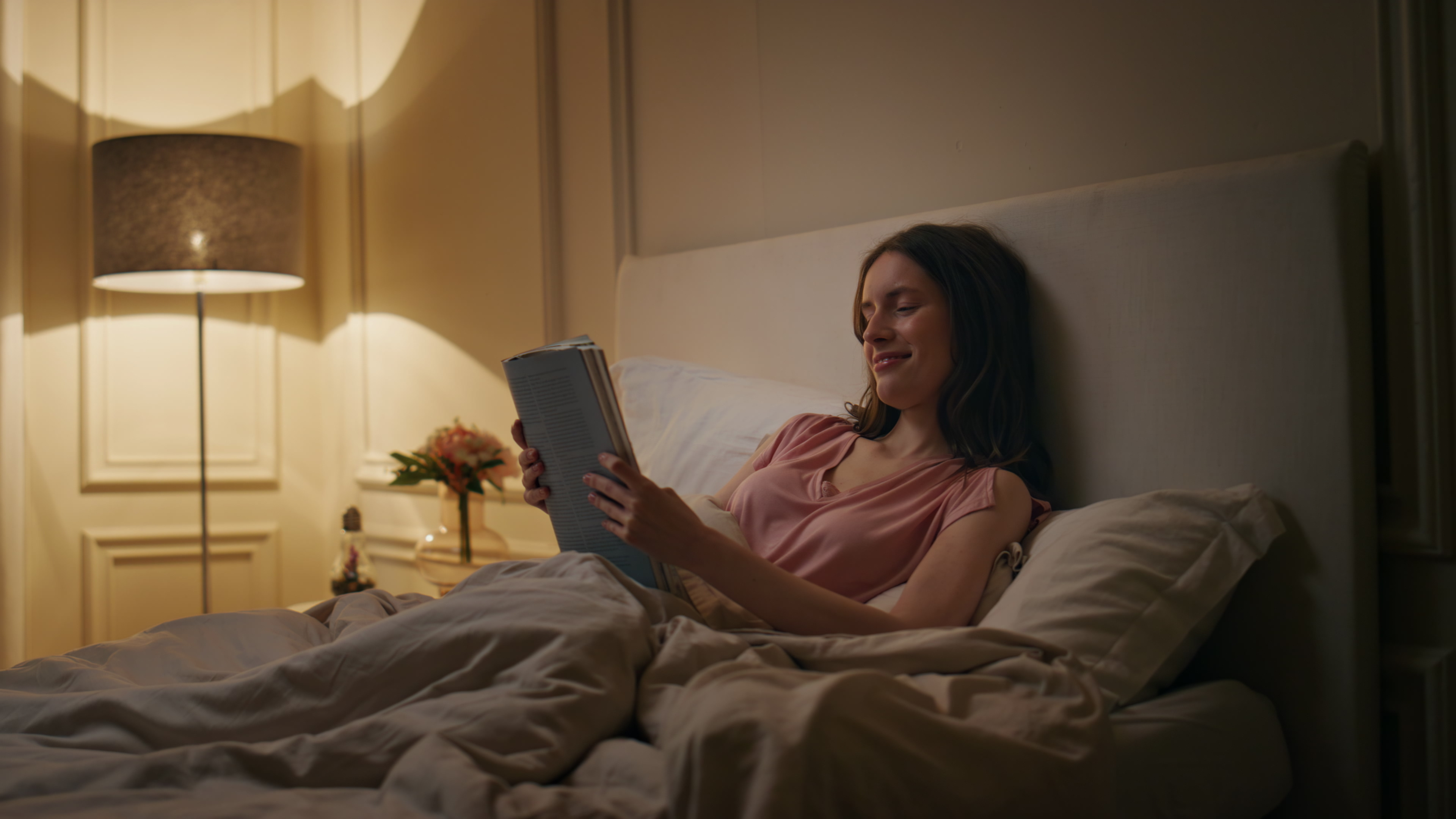
Going to bed early can help ensure our body gets the rest it deserves at the end of the day. While you snooze, your brain processes everything you learned throughout the day. It’s not just brain functions that are impacted, it affects your growth, appetite, cardiovascular health, breathing and immune system.
“When we’re sick, the immune system works overtime, and sleep helps support that process. More sleep allows the body to fight off infections, repair cells, and recover more efficiently, which is why it feels so essential during illness,” explains Dr Chelsea Perry, a member of the American Academy of Dental Sleep Medicine.
Why is going to sleep earlier more difficult for some people?
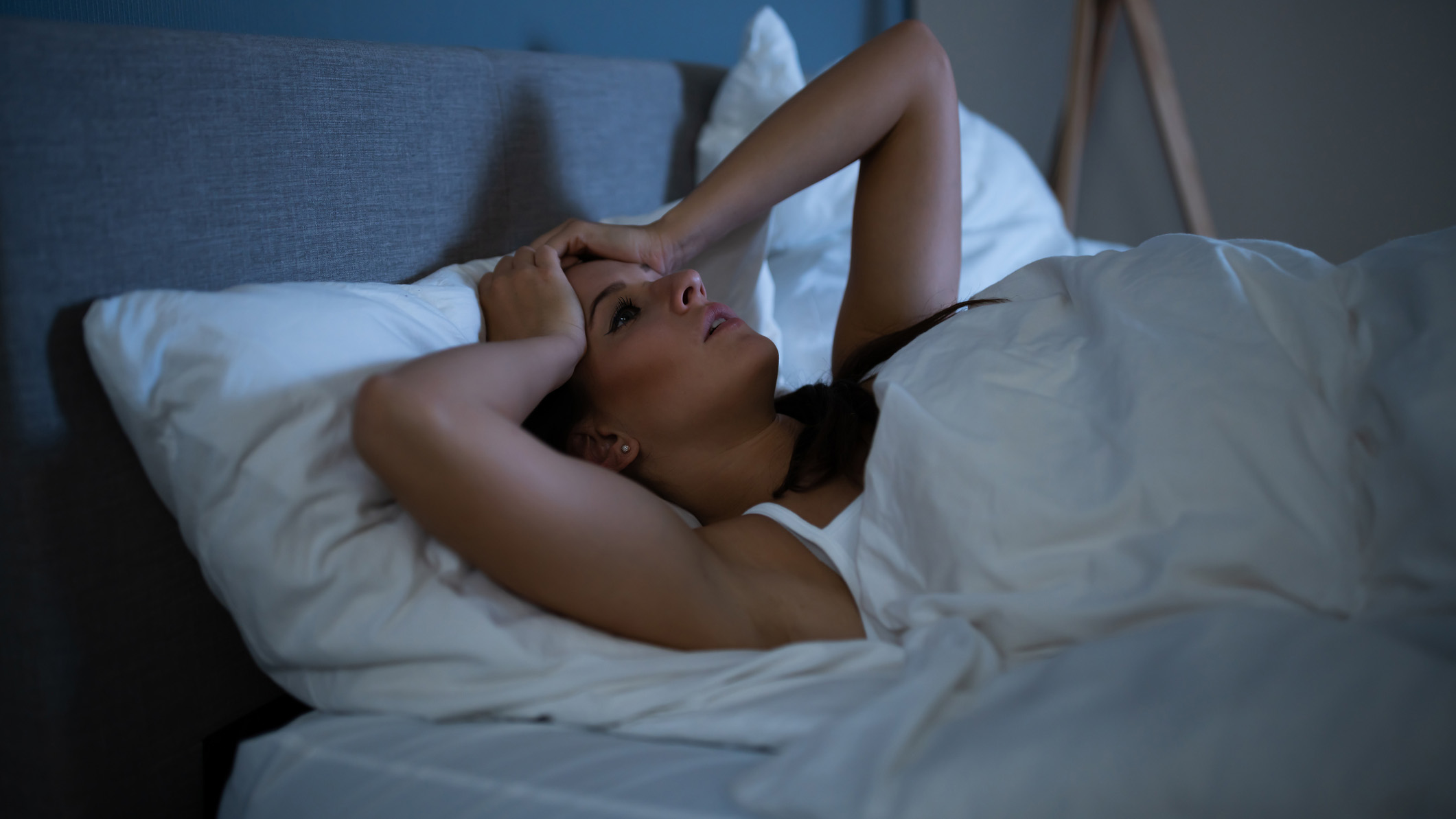
Some people may find it harder than others to go to sleep earlier than they are used to. This is because of the variation of chronotypes which we mentioned earlier.
“For some people, going to sleep early is tough because their internal clock, or chronotype, is naturally wired for later sleep. "Night owls" often feel more alert in the evening, while "morning larks" have more energy earlier in the day. These differences in energy levels can make adjusting your sleep schedule challenging if you’re more of a night person,” says Dr. Perry.
There are four types of chronotypes: lion, bear, wolf and dolphin. These are based on your preferences of wake-up time, phases of the day when you're most active and the natural hour of the day when you feel tired enough to go to sleep. According to studies, around 55% of the population belong to the bear chronotype, meaning you wake up at sunrise, are most productive between 10am and 2 pm and go to sleep by 11pm.
What is important to note is that sudden changes to your sleep routine which are quite different from your chronotype, can worsen the process of gaining the most from your sleep. Instead of picking a specific time, start introducing changes slowly like going to bed 20 minutes earlier than you actually do, all the while adjusting your wake-up time accordingly.







